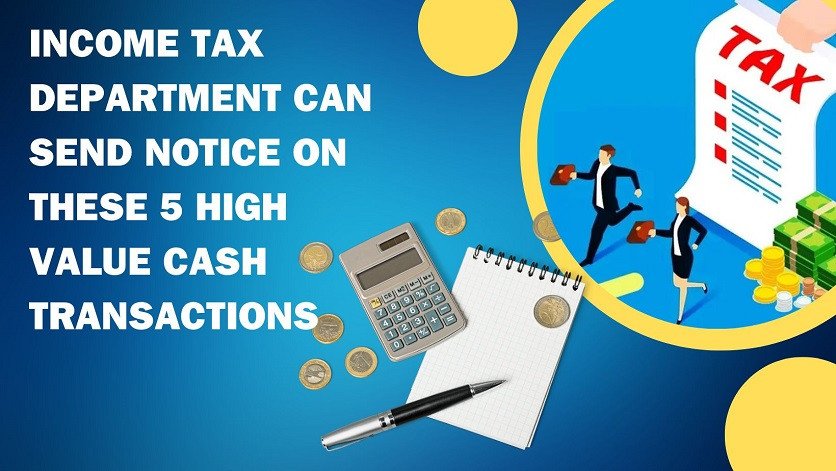Share

Misconception that cashless transactions are less traceable by the Income Tax Department has arisen due to the increasing prevalence of such transactions. Nevertheless, this belief is incorrect. This is because banks and other financial institutions must notify the Income Tax department of transactions surpassing a specified threshold. This encompasses card payments, UPI transactions, as well as cash deposits, and withdrawals beyond a designated limit.
The department employs advanced data analytics tools to detect disparities between declared income and incurred expenses. It can cross-check information from diverse sources such as bank statements, property records, investment details, and travel records to construct a comprehensive financial profile of individuals. Apart, it also can collect information from external sources such as employers, travel agencies, and stock exchanges to validate income sources and pinpoint possible discrepancies.
This degree of scrutiny proves valuable in suspected cases of tax evasion, enabling the department to initiate scrutiny assessments, issue notices, and conduct inquiries directly to accumulate evidence and recover taxes. Below is a compilation of common transactions that could trigger a tax notice, even when conducted in cash:
Depositing an amount exceeding ₹10 lakh in a single or combined financial year attracts attention from the Income Tax Department (ITD) in India. Any cash deposit surpassing ₹10 lakh in a financial year (April 01 to March 31) across all your savings accounts is duly reported to the ITD. The Central Board of Direct Taxes (CBDT) requires banks to report such transactions. Even if the deposit is divided among multiple accounts, any cumulative amount exceeding ₹10 lakh will still be flagged.
Surpassing the ₹10 lakh limit doesn’t inherently suggest tax evasion, but it does prompt scrutiny from the Department. Explaining the source of the deposited funds becomes necessary, particularly if it doesn’t align with your declared income. If the explanation is considered unsatisfactory or if discrepancies arise in your tax returns, you could potentially face additional inquiries or penalties.
The ITD’s evaluation is also influenced by the intended use of the deposited funds. For instance, placing business income into a personal account could lead to concerns. Your comprehensive financial profile, encompassing income sources, expenses, investments, and other significant transactions, is taken into account by the ITD. Ensuring compliance is essential; maintaining accurate records and aligning your tax returns with your income and expenses is crucial to prevent unwarranted scrutiny.
Fixed deposits made with cash
Given the recent uptick in fixed deposit (FD) rates, these have become increasingly appealing choices for investors, especially for those in search of a steady and predictable income. The existing limit for reporting cash deposits to the ITD is ₹10 lakh within a single financial year (April 01 to March 31), irrespective of the purpose, including fixed deposits. It is crucial to take note of multiple deposits across different bank accounts. Even if you divide the cash deposit into smaller amounts across various accounts, any combined sum surpassing ₹10 lakhs will be brought to the attention of authorities.
Surpassing the limit doesn’t inherently indicate tax evasion, but it does attract the ITD’s attention, necessitating an explanation for the source of the funds. This scrutiny applies to any fixed deposit exceeding ₹10 lakhs.
The ₹10 lakh limit applies to the cumulative value of your FD holdings across all accounts and financial institutions, not solely to the individual deposit amount. Similar to cash deposits, surpassing this threshold may trigger inquiries regarding the source of funds, particularly if it doesn’t align with your declared income.
Purchases of shares, mutual funds, and bonds made in cash
Investing in bonds, shares, mutual funds, and debentures with cash transactions could result in an income tax notice if the investment surpasses a threshold of ₹10 lakh. Digital transactions, on the other hand, leave behind an online trail for both investors and the ITD alike.
Surpassing a particular threshold may prompt scrutiny from the ITD, but it does not automatically indicate the issuance of a tax notice or any wrongdoing. The ITD’s emphasis lies in identifying inconsistencies between declared income and expenses rather than discouraging investment through specific thresholds.
Repaying credit card bill in cash
There is no explicit rule mandating automatic scrutiny for cash payments towards credit card bills, irrespective of the amount. However, if you make a cash payment for a monthly credit card bill exceeding ₹1 lakh, the department automatically seeks information about the source of funds.
Surpassing any high-value transaction threshold, which includes cash payments, could initiate general scrutiny by the ITD. This examination is designed to uncover possible disparities between your declared income and expenses and is not specifically focused on credit card bill payments.
Cash payments related to properties
In India, when acquiring a property valued at over ₹30 lakhs, the ITD mandates the buyer to disclose the origin of the funds utilized for the purchase. This measure is implemented to counteract tax evasion and prevent money laundering activities.
The existing threshold for compulsory declaration of the source of funds is ₹50 lakhs for property acquisitions in urban areas and ₹20 lakhs for rural areas. Nevertheless, certain states may enforce more stringent thresholds, hence it is advisable to verify the specific regulations applicable in your region.
You have the option to declare the source of funds by including it in the registration documents or by submitting Form 26QB to the ITD. Even if the property purchase value is below the threshold, the Department retains the authority to request the source of funds if there are suspicions of discrepancies in your income or other transactions. Neglecting to declare the source of funds may result in penalties, tax assessments, and potentially lead to investigations.
To address an ITD notice concerning high-value cash transactions, it is essential to possess sufficient documentation substantiating your assertion about the source of funds. This documentation may include bank statements, investment records, or inheritance papers.
Related Posts
SEARCH SMECONNECT-DESK
RECENT POST
- New Passport update: Adding spouse’s name to passport no longer needs marriage certificate, says MEA- Details here
- Indian start-ups are chasing ‘brain-dead’ ideas, says Vivek Wadhwa; urges entrepreneurs to tackle problems with smart tech:
- Mohandas Pai bashed me for my appeals for start-ups to focus on innovation; it is unfortunate: Piyush Goyal:
- TReDS: Govt. reduces turnover threshold to Rs.250 crores to get more companies on invoice discounting platform:
- Sebi against exuberance, price manipulations in SME listings; Board to discuss it soon: WTM Bhatia









